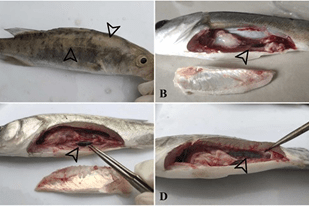ALSO KNOWN AS: Edwardsiellosis
Edwardsiella piscicida is a Gram-negative, facultatively anaerobic bacterium belonging to the Enterobacteriaceae family. It is an intracellular pathogen that causes edwardsiellosis, a systemic disease in fish characterized by hemorrhagic septicemia, skin lesions, and internal organ necrosis. Outbreaks are often associated with environmental stressors such as poor water quality and temperature fluctuations.
Distribution: Worldwide in freshwater and marine environments.
Hosts: A wide range of fish species, including catfish, tilapia, and largemouth bass.
Detection Methods: Bacterial culture on Tryptic Soy Agar (TSA) or brain–heart infusion agar.
Target Tissue: Blood and internal organs.

We help identify and prevent fish diseases, supporting sustainable aquaculture and healthy ecosystems.
Follow us
©Copyright 2025 | Powered by Fish Disease Org | Associated with Kentucky State University
Designed & Developed by Achieve Digital & Webgen Technologies
Get a personalized walkthrough of our platform and learn how to use our pathogen database, image galleries, and diagnostic tools effectively.